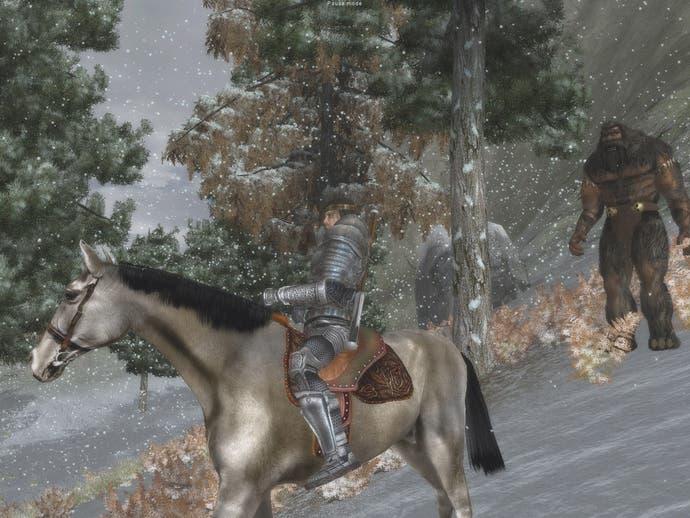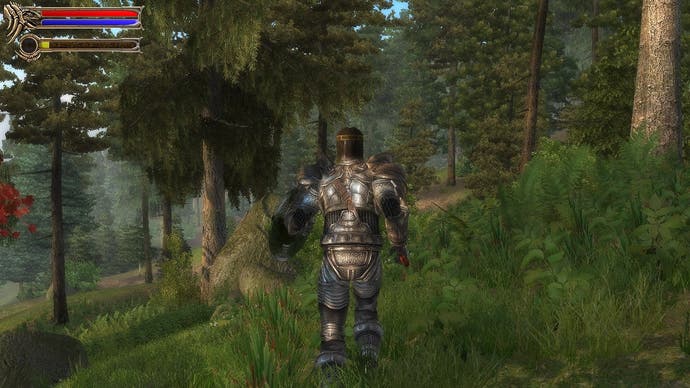Two Worlds
Dirk Hassinger speaks out.
It's not easy being a role-playing game; not when all everyone talks about is your big brother and how good he is. Sure you're different. That's what they all say. Why should we believe you?
Reality Pump has had this problem with Two Worlds ever since it reared its head back in 2005. At first glance it looks strikingly similar to the much-applauded Oblivion. It's on the same platforms, for starters, has the same free-roaming and sprawling gameplay, plus the graphics look as if they could be twins. But underneath all that is a game desperately trying to carve its own identity; one with mounted combat, an item combination system, and that curious MMO-style multiplayer option.
We had a chance to see how it all meshed together in our recent first impressions, but still felt we weren't getting the whole picture. So ahead of its scheduled early August release, we got hold of Zuxxez (publisher in the US and Germany) big-cheese Dirk Hassinger to find out if it was all just a case of mistaken identities.
Two Worlds may seem to be in the Oblivion template, but the two games are very different once you get beyond the surface. Two Worlds offers a more focused, grittier experience - and a lot of correlating features are deeper in it. Our inventory system is smarter, our magic system is much more complex, and even the way we handle horses has more depth. Beyond those game mechanics we have a much more complex society, with many more factions working within it. Our overarching storyline is a touch darker and more involved, too. Which is not to say Oblivion is a worse game, just that Two Worlds has more 'meat'.

Our commitment to player freedom means our character customisation is seriously deep. We have no class definitions, which means players are free to sculpt their avatar as they like - based on the skills players choose to learn. There's also a really nice progression as skills improve, and the sense of increasing power is really tangible. What's more, there's no level cap on your character. You can keep on progressing indefinitely if you wish. And by talking to the right people you can even undo all of your skill point assignments, then completely re-specialise your character using the points you've already earned.

The main storyline in Two Worlds is very different to the one in Oblivion. The basic premise is that the world is split into regions defined by various races. Humans, Orcs, Elves and Dwarves are familiar, but races like the Serpents (snake-based people) and the Trachidis (insectoids) should feel fresh even for die-hard fans of the genre.
The Orcs are the 'enemy' race and have been kept at bay ever since their god of war was slain and his body entombed in a secret location. However, the tomb has recently been re-discovered and the Orcs are about to embark on a holy crusade to reclaim their fallen god. Obviously this means things are about to turn nasty, which brings a sense of brooding menace to the game.
You start out as a wandering mercenary trying to find your missing sister. I'm not going to give too much away, but you and your sister are significant to the main story, which will become clear as you encounter members of a secret brotherhood during your personal story arc.
Two Worlds also has more than its fair share of side-quests. There are hundreds of them, and they can affect more than just your statistics - as each race is split into different groups with separate goals and needs, so there are political repercussions for just about everything you do. It's up to you to decide which faction to work for and if your morality will affect the missions you do.


